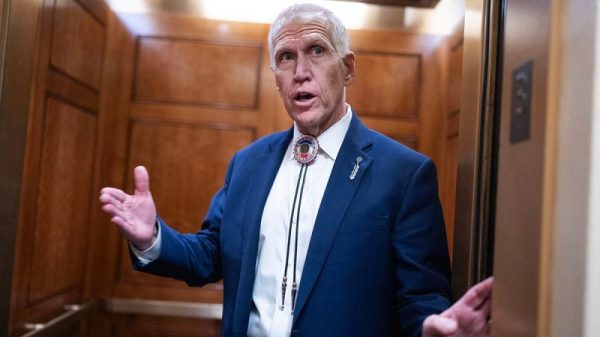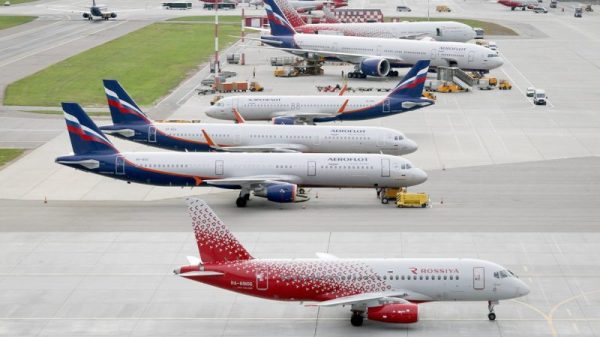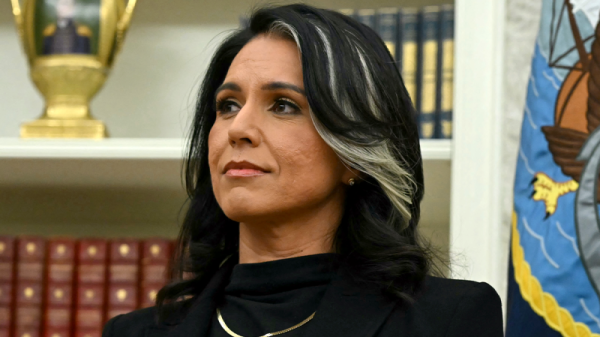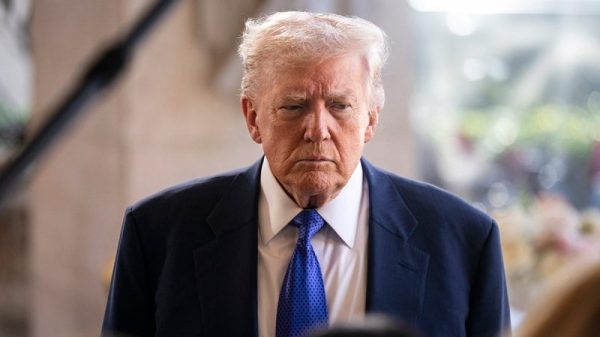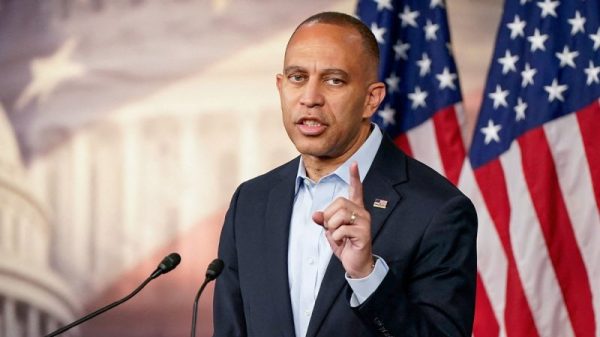The COVID-19 pandemic gave us, among other evils, the bizarre spectacle of bipartisan calls for protectionist measures. In 2020, as the world reacted to the COVID-19 pandemic, shortages of key supplies quickly developed. Medical necessities such as personal protective equipment (PPE), inputs for various drugs, hand sanitizer, wipes, and even common household items like toilet paper disappeared from shelves and left consumers scrambling. The presence of these shortages became a bipartisan rallying cry for protectionism. Republican Senator J.D. Vance blamed a shortage of amoxicillin (a common treatment for ear infections) on free trade, and has used it to issue calls for “reshoring.” Secretary of the Treasury Janet Yellen has endorsed protectionist policies in the name of “economic” and “national security.” Protectionism, they say, is necessary to shore up American supply chains and reduce fragility and vulnerability to the US economy.
Were the shortages and economic turmoil that arose during the pandemic due to free trade? Good analysis and wise policy depend on looking at events in their full context. Thus, to fully understand the shortages and what policy is necessary to prevent such a breakdown in the future, we need to understand the legal and economic world of the pandemic. Such an analysis shows that these protectionist justifications do not fly.
The argument that free trade makes an economy vulnerable appears to be correct on the surface: As economies become more interwoven, shocks in one nation can spill over and affect other nations intertwined with them. Thus, to prevent such contagion, isolating or building domestic redundancies into supply chains may be needed to prevent disruptions.
This argument rests on two critical mistakes: a fundamental misunderstanding of trade and erroneous assumptions of the incentives faced by economic actors. Understanding these two faults will allow us to see how their argument that trade makes supply chains vulnerable is incorrect.
Comparative Advantage is Between Individuals
Trade is built upon the concept of comparative advantage. Comparative advantage is an intuitive concept. One makes what is cheaper for him to make (in terms of foregone resources) and buys what it is cheaper for him to buy. One will specialize in and sell (“export”) what one is relatively good at producing and buy (“import”) what one is relatively poor at producing. In the context of international trade, many textbooks will present comparative advantage in terms of countries. This presentation of comparative advantage has useful pedagogical applications, but it is, strictly speaking, incorrect. Comparative advantage is always between individuals, not countries. A person or a firm may have comparative advantage, but not a country. This implies that, within a political boundary, there will be many different comparative advantages and disadvantages. In turn, this leads to a phenomenon known as intra-industry trade, where a country both imports and exports goods in the same industry.
Protectionists often take the model of countries having comparative advantage literally, rather than as a pedagogical tool. They discard individualism, which means they are already misunderstanding the role of trade. Consequently, they argue that, as the model predicts, nations specialize in certain goods and import the rest. This specialization makes supply chains vulnerable. A proper understanding of trade as between individuals, however, means that individuals specialize and trade, not countries. Individuals may be vulnerable, but not entire countries if they embrace free trade. To the extent that entire economies are vulnerable, it is because the government discourages free trade.
It is conceivable that, if there is a domestic monopoly that faces a supply shock from a foreign producer of a crucial input, then that could cause a shockwave throughout the domestic economy. But market participants anticipate that problem. When the number of suppliers is increased to include both foreign and domestic, the systemic importance of any one supplier falls. If one foreign supplier suffers a shock, others exist to pick up the slack. Market participants know this and often have relationships with multiple suppliers of their needed inputs. Protectionism limits the ability of individuals to develop redundancies. This point brings us to the second mistake proponents of protectionism make: misunderstanding incentives.
Incentives Matter
Given a world of scarcity, we are constantly choosing among alternatives. Our choices depend on the perceived costs and benefits of different alternatives. Expectations about the future play a large role in our evaluations of these alternatives. In early March 2020, many firms had no expectation of such a global disruption of international trade. Firms practiced “just-in-time” manufacturing, which leaves little wiggle room to deal with significant shocks. But times have changed. Firms expect global disruptions and search out ways to make their supply chains more robust. If making supply chains wholly domestic is the best of all the reasonable alternatives, we would expect firms to take those actions without the need for protectionism.
Conversely, the incentives faced by politicians do not align with a robust supply chain. They neither earn the benefits of such robustness nor face penalties if their choices are incorrect. Rather, they tend to face political incentives: re-election, appeasing different groups, flashy proposals, and so on. Even the most well-intentioned political decision-maker does not face the proper incentive structure to make the best decision.
If protectionism makes supply chains more robust, then we should expect to see that in the data. A quick overview shows, however, that protected industries are more vulnerable to shocks than less-protected industries. Two examples will serve to illustrate this point.
First, US shipping capacity. The US shipbuilding industry is highly protected. The Jones Act, a century-old piece of legislation, requires all goods shipped between US ports to be on ships built, flagged, and crewed by Americans. The logic of the Act is simple. By ensuring a domestic fleet and supply of shipbuilding capacity, the US will not get caught flat-footed if the need arises for a large deployment of military equipment, as it did in World War I. The Jones Act, though, has failed in this respect. The Act is frequently waived during states of emergency in order to increase supplies to a stricken area. The Jones Act has failed to make US shipping more robust.
Second, baby formula. The USDA strictly regulates baby formula in the US. In fact, only six producers of baby formula are allowed to operate in the United States, and imports are strictly forbidden unless approved by the FDA. When Abbott Nutrition, one of the six producers, was forced to shut down in May 2022 over safety concerns, a massive shortage of baby formula hit the US. President Biden invoked the Defense Production Act to waive FDA requirements and flew in supply from overseas. Rather than making the US baby formula robust, the protectionist actions made it so vulnerable that they had to be waived to deal with a single factory’s shuttering. These examples show that protectionism weakens supply chains and makes manufacturing more vulnerable to disruptions because alternatives cannot be procured. Free trade cannot be blamed for making supply chains and industries vulnerable to disruptions; rather, it makes them more robust. Free trade cannot be blamed for the shortages resulting from COVID-19. Rather, the lockdowns and price controls caused the disruptions.
















